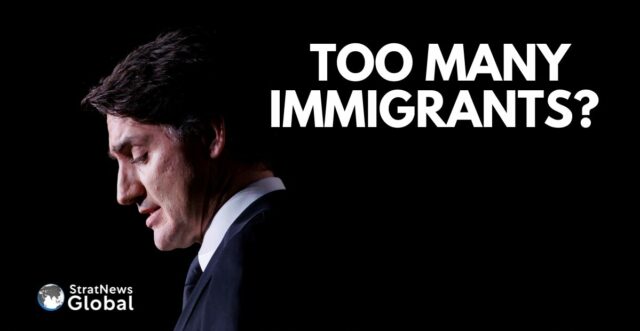A growing perception in Canada about immigration is fuelling a xenophobic backlash evidenced by a surge in reported hate crimes against visible minorities. Many believe that immigration is to blame for some of the country’s economic woes.
Long gone are the days when Canada took pride in welcoming newcomers. Now, it is facing a reckoning over a sharp rise in the number of “temporary residents” such as international students and workers. Opinion polls show that the public believes Canada has too many immigrants. And many blame them for a worsening housing crisis and surge in the cost of living.
That appears to have contributed to a slump in popularity of Justin Trudeau’s minority Liberal government. A national election is due no later than October 2025. But it may come sooner after the New Democratic Party this week withdrew its automatic support for the government.
Hate crimes reported by police more than doubled from 2019 to 2023, according to the latest figures from Statistics Canada. Around 44.5% of incidents in 2023 were motivated by race or ethnicity. Hate crimes can include anything from homicide and assault to mischief and public incitement of hatred.
The apparent growth in anti-immigrant sentiment runs counter to a long-standing consensus in Canada that the country welcomes newcomers on humanitarian and economic grounds.
But concern over a shortage of housing and affordability appears to have weakened that consensus. It has given fresh life to years-old anti-immigrant tropes, said Peter Smith, a researcher with the Canadian Anti-Hate Network.
“People are looking for something to change, and people are also looking for someone to blame,” he said. “The target, unfortunately – and, you know, a very easy one – is immigrants.”
Growing Temporary Residents
Canada added more than 470,000 new permanent residents in 2023. This is roughly 1% of its population. But the biggest jump in immigration numbers comes from temporary residents, especially students and workers. Their ranks have doubled in just two years from 1.4 million in the second quarter of 2022 to 2.8 million in the second quarter of 2024, according to Statistics Canada.
A Leger poll last month found 65% of Canadians surveyed believe the Canadian government’s current immigration plan will admit too many people. Most said they believe current immigration rates are contributing to the housing crisis and stresses on healthcare services and called Canada’s immigration policy “too generous.”
Balpreet Singh, legal counsel for the World Sikh Organization of Canada, believes this perception has prompted a xenophobic response. He said Sikhs were often targeted by hate.
“You’re using the image of a Sikh to represent all the so-called problems of immigration. It’s not a surprise then that Sikh men – who are very visible because of their turbans and beards – are being attacked,” he said.
‘Out-Of-control’ System
In an interview, Immigration Minister Marc Miller said Canada is not immune to anti-immigrant sentiment. He said its longstanding consensus around immigration, while challenged, remains part of the national identity. He said politicians need to be careful with their language.
“I’m not going to say there aren’t any racists in Canada. There are,” he said. “I don’t think it’s risen to the level we’ve seen in other countries. I think we have to be vigilant.”
Conservative leader Pierre Poilievre has called Canada’s immigration system “out of control.” Polls suggest he would win a majority if an election were held now.
(with inputs from Reuters)





